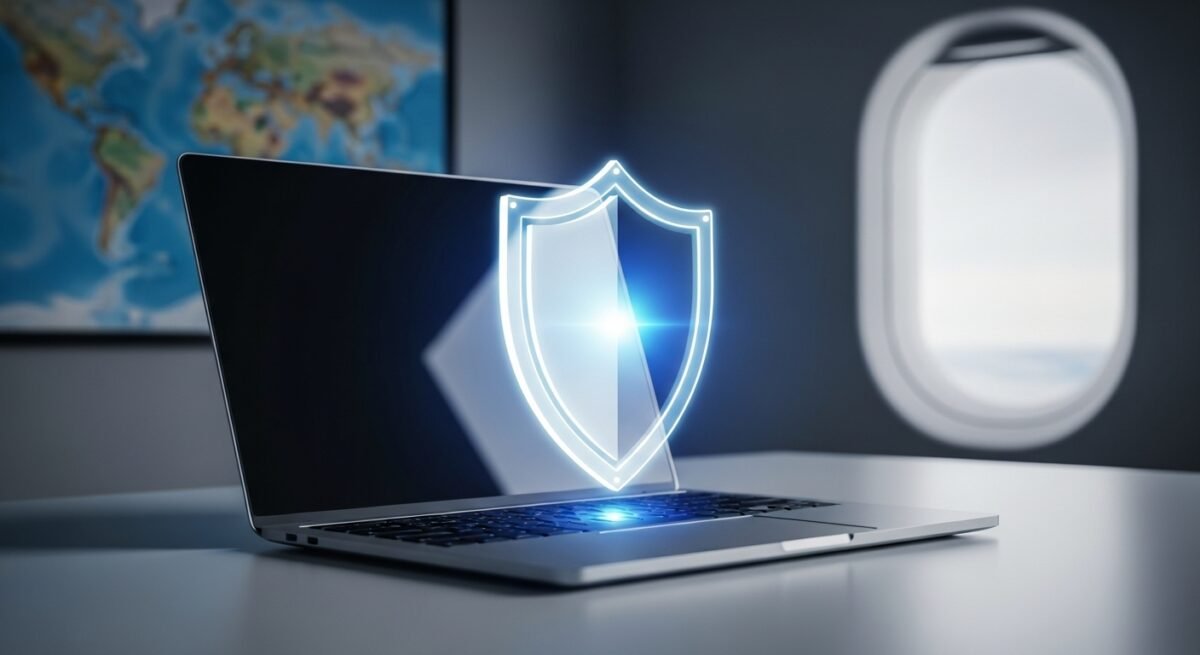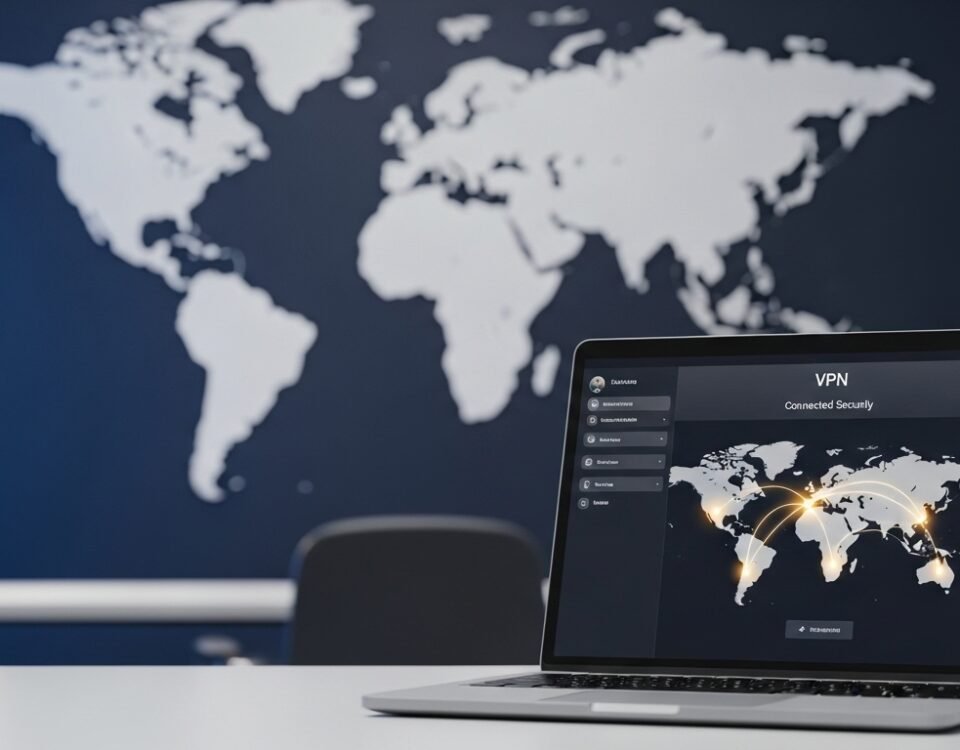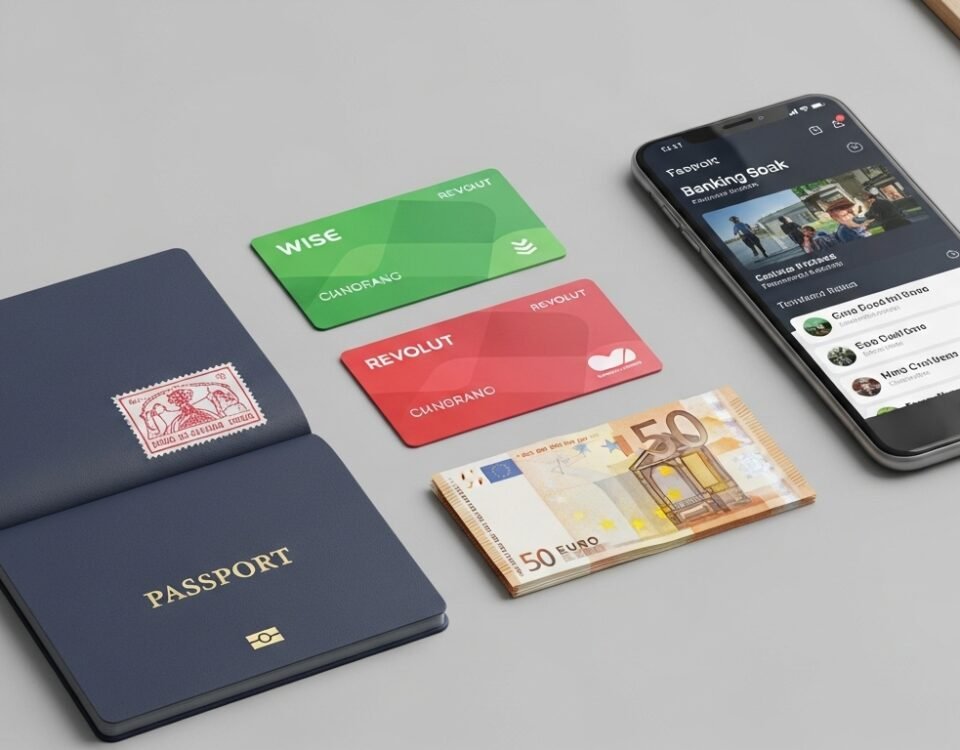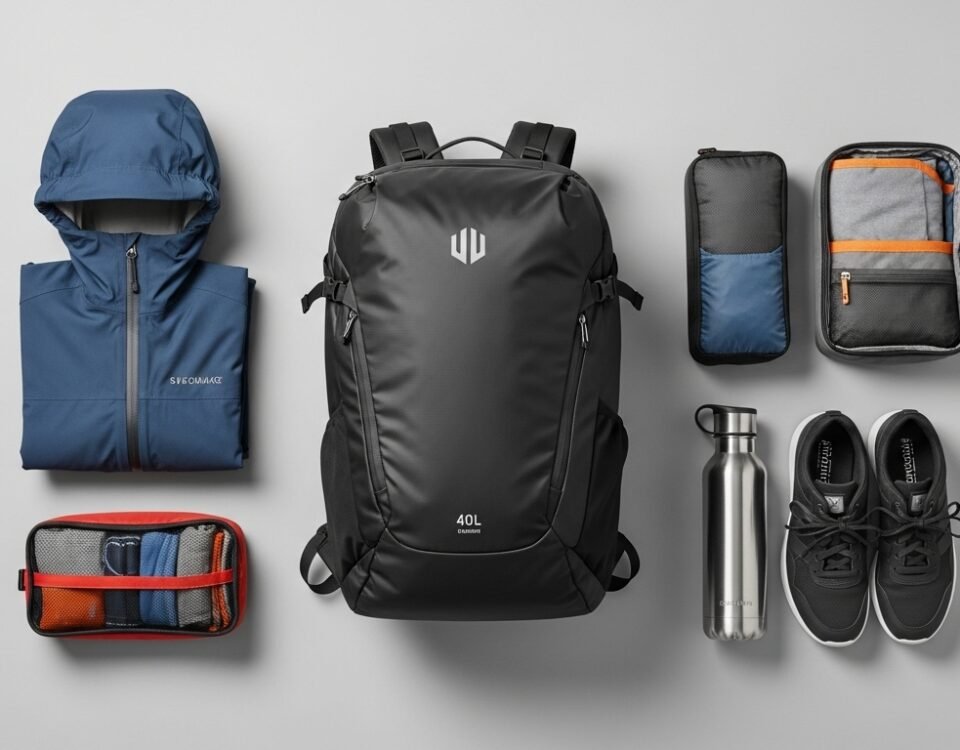You’ve just found the perfect cafe in Rome. The coffee is excellent, the view is inspiring, and best of all, there’s a strong, free Wi-Fi signal. You connect, log into your online banking to send an invoice, and get to work.
This scenario is the digital nomad dream. It’s also a massive security risk.
In our rush for convenience, we often forget that public Wi-Fi is like having a conversation in a crowded room—you never know who might be listening. For a professional whose entire livelihood is online, digital security isn't an optional extra; it's a non-negotiable part of your business infrastructure. This is our digital nomad security guide, a simple framework for protecting your most valuable assets: your data and your career.
The #1 Threat: The Unseen Dangers of Public Wi-Fi
The single biggest risk you face is an unsecured public network. When you use the Wi-Fi at a cafe, airport, or even some Airbnbs, a malicious actor on the same network can potentially intercept your data. This is called a "Man-in-the-Middle" attack, and it can expose your passwords, banking details, and client information.
The Professional's Toolkit for Digital Security
You don't need a degree in cybersecurity to stay safe. You just need a simple, robust system built on three core pillars.

1. The VPN: Your Personal Invisibility Cloak
A VPN (Virtual Private Network) is the single most important security tool you will use.
What it is: A VPN is an app that creates a secure, encrypted "tunnel" for your internet connection. It scrambles all your data, making it completely unreadable to anyone trying to snoop on the network.
When to Use It: Always. Make it a habit to turn on your VPN the moment you connect to any network you don't personally control.
Other Key Benefits:
Access Home Services: A VPN lets you connect to a server in your home country, allowing you to access streaming services (like Netflix) or even certain banking apps that are geographically restricted.
Bypass Geo-Pricing: Some booking websites show different prices based on your location. A VPN can help you find the best deal.
The natural next question is: with hundreds of options on the market, which service should you actually choose? To help you make a smart decision, we've created a separate, in-depth article. You can read it here: our detailed guide to the best VPNs for digital nomads.
2. The Backup Strategy: The Professional 3-2-1 Rule
A lost or stolen laptop is a nightmare. A lost or stolen laptop when it contains the only copy of your work and personal files is a catastrophe. Professionals use a simple, redundant system called the 3-2-1 Rule.
3 Copies of Your Data: You should have three copies of all your critical files.
2 Different Types of Media: Don't just have two copies on the same hard drive.
1 Copy Off-Site: One copy must be stored in a different physical location.
The Nomad's 3-2-1 System in Practice:
Copy 1 (The Original): On your laptop's internal hard drive.
Copy 2 (The Physical Backup): On a small, portable SSD (Solid State Drive) that you keep in your backpack.
Copy 3 (The Off-Site Backup): In the cloud. Use a service like Google Drive, iCloud, or Dropbox to automatically sync your most important files.
3. The Password Fortress: Your Password Manager
Reusing the same password across multiple websites is like using the same key for your house, your car, and your bank vault. If one gets compromised, they all are.
The Solution: Use a password manager (like Bitwarden, 1Password, or LastPass). This is an encrypted app that generates and stores a unique, complex password for every single website you use. You only have to remember one master password.
Enable Two-Factor Authentication (2FA): For your most important accounts (email, banking), always enable 2FA. It's an extra layer of security that requires a code from your phone to log in, and it's one of the most effective ways to prevent unauthorized access.
This complete digital nomad security guide isn't about creating paranoia; it's about building professional habits. By implementing this simple three-pillar system, you can work from anywhere in the world with the confidence that your digital life is secure, allowing you to focus on your work and your travels.
What's your number one digital security tip for life on the road? Share it in the comments below!


